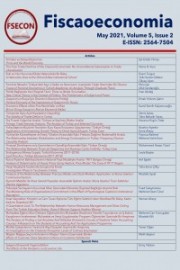Firmalar ve Dünya Ekonomisi
Firms and the World Economy
Author(s): Şiir Erkök YilmazSubject(s): Supranational / Global Economy, Globalization
Published by: Ahmet Arif Eren
Keywords: Transnational Corporations; World Economy; Globalization;
Summary/Abstract: Ronald Coase in 1930s observed that firms grew only so long as it was cheaper for them to complete additional parts of the production process in-house. From 1980 onwards trade and financial liberalization accompanied by radical technological developments in transportation, information and communication (IC) have reduced the cost of cross-border trade. Firms through global value chains (GVC) unbundled their production processes thus changed the geography of jobs and traditional trade patterns. Nowadays large firms named Transnational Corporations (TNC) or superstar firms dominate the international production through global value chains. The aim and organization of these chains determine the hierarchy among the firms. Firms’ market power is the outcome of the intangibles that specially belong to the lead firm in GVC. These intangible assets are not easily obtained but derive huge profits. In order to catch and sustain a competitive advantage firms ought to increase these intangible assets through R&D investments. Recent decades are called as hyper globalization era and the characteristic feature of this era is the hyper competition among large firms through innovation. Large firms are luckier to carry on R&D activities and to evaluate and commercialize any kind of invention or innovation wherever it has been developed. Large firms are getting larger by means of ICT and are the dominants of the global economy. GVC trade and facilities that ICT bring to the emerging countries help them to join in international production and to attain higher rates of growth but it is hard to mention about a convergence between the developing and the developed economies. Only the countries which succeeded in transferring the core R&D activities to their territories and upgrading the production processes under their responsibility are ranked among the top economies that monitor the global economy. Despite the neoliberal recipes designed for the emerging economies, state intervention is frequently taken place in the developed South (especially in China) where State Owned Enterprises and Sovereign Wealth Funds emerged as new kind of investors. Especially Chinese State-Owned Enterprises ranked among the world’s top R&D investors. In emerging economies governments should adopt a strategic policy to support effectively the firms that are rich in human capital and are able to undertake counter measures against surprising attacks of the digital technology.
Journal: Fiscaoeconomia
- Issue Year: 5/2021
- Issue No: 2
- Page Range: 372-389
- Page Count: 18
- Language: Turkish

